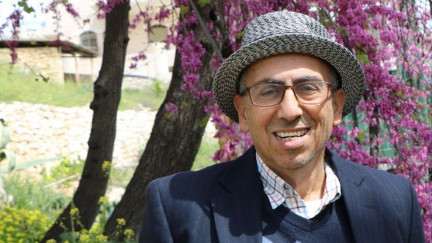Palestinian scientist Mazin Qumsiyeh to speak at the UAB on global ecocide and environmental justice
Professor Mazin Qumsiyeh, founder and volunteer director of the Palestine Institute for Biodiversity and Sustainability at Bethlehem University (palestinenature.org), will give a talk entitled “The global ecocide and what to do about it: case study from Palestine” on Friday 17 October at 11:00 a.m., in the Board Room of the UAB Rectorat building.

Professor Qumsiyeh will be visiting the Universitat Autònoma de Barcelona (UAB) at the invitation of researchers from the Institute of Environmental Science and Technology (ICTA-UAB), with whom he collaborates on biodiversity conservation and climate justice issues, especially with those from the LASEG group.
In his lecture, Prof. Qumsiyeh will address the global ecological crisis threatening the sustainability of human and natural communities, shaped by climate change, habitat destruction, pollution, overexploitation of natural resources, invasive species, and conflicts. Using a case study from Palestine, he will analyse the causes and impacts of this situation and discuss possible ways forward to promote peace, environmental justice, and sustainability.Qumsiyeh argues that working for environmental justice and human rights is essential to achieving peace and sustainability, not only in Western Asia but worldwide.
During his talk, he will also highlight the work of the Palestine Institute for Biodiversity and Sustainability (palestinenature.org), a leading institution in the region for its integrative approach to conservation, education, and social justice.Professor Mazin Qumsiyeh, nominated for the 2025 Nobel Peace Prize, has had a distinguished academic and research career at universities in the United States, including Tennessee, Duke, and Yale. He has authored over 250 scientific papers, 30 book chapters, and several books, such as Sharing the Land of Canaan and Popular Resistance in Palestine. His research spans topics from the environmental impact of colonisation to climate justice, biodiversity conservation, and human rights.
He has served on the boards of eleven human rights organisations and led numerous community empowerment projects benefiting thousands of people. His work has been recognised with awards such as the Paul K. Feyerabend Foundation Award, the Takreem Award, and the Peaceseeker of the Year Award.